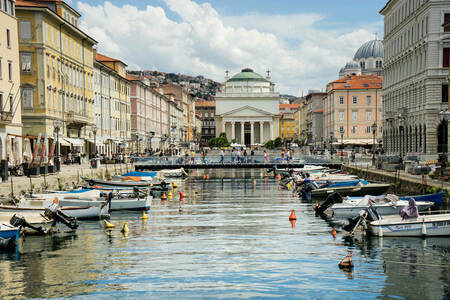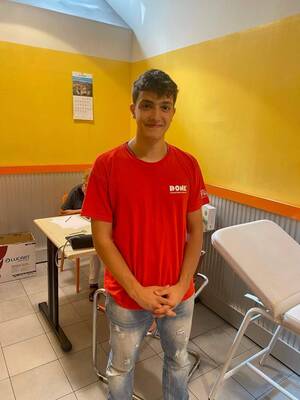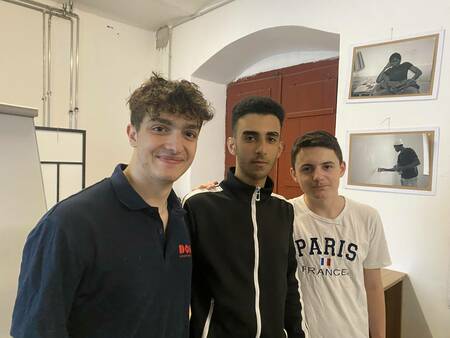

Gabriel Biondo is a pre-med neuroscience and Italian major currently in Trieste with the Rome Summer Internship Program. He is an Italian-American living in the United States and his family is originally from Trapani, Sicily; his grandparents migrated to the United States in the early 1970s.
Biondo spent his childhood in a bilingual family, traveling to Sicily in the summer to visit his relatives and he has always considered Sicily as his second home.
During the summer 2022, Biondo took a class at the University of Notre Dame with Professor Tiziana Serafini on how to teach Italian to refugees, upon completion of which he taught with her for a few weeks in the summer. He enjoyed the experience so much that during the fall semester he became Professor Serafini’s teaching assistant for this course. They organized a Zoom club for students who wanted to learn more about the topic.
After completing his exams in the spring 2023, Biondo arrived in the Northeast of Italy, precisely in Trieste, a city located on a narrow strip of Italian territory lying between the Adriatic Sea and Slovenia. Trieste is geographically on the opposite side to Trapani and the island of Sicily and it witnesses a huge flow of migration from the Middle East.
“This was my first time in the north of Italy and it has been very interesting so far,” comments Biondo. “The architecture is completely different from the one in the south, as in the north it looks much more Austrian, and dialects are less prevalent, the people speak mainly Italian.”

In Trieste, Biondo is interning with DONK humanitarian medicine providing healthcare to the ones without tessera sanitaria (Italian health insurance card) because they just arrived in Italy and he is working with ICS - Consorzio Italiano di Solidarietà.
“In the morning I work as an Italian teacher to refugees,” Biondo says “and in the afternoons I shadow a physician in the clinic. As part of the internship I help collect and organize medications and I assist the doctor with health visits,” explains Biondo.
His refugee students are mainly coming from Bangladesh, Afghanistan and Iraq. Recently, Biondo started his own Italian class and he has been teaching refugees from Ukraine and Kosovo.
“Interestingly, I went to an Ukrainian school for nine years and I took Ukrainian language classes every day,” explains Biondo. “I was the only Italian American in that school. This helps me connect with the students now at ICS: as soon as I say some word in Ukrainian they always smile, we used to sing songs about the revolution and war and being able to understand their culture is crucial.”
In the afternoons, he works with Donk. Donk helps refugees acclimate to society, provide them with housing, showers, food and drinks and primary health care.

“It is more of a human experience than I expected,” adds Biondo. “We meet with refugees who left their country more than a decade ago and have been trying to cross the border five, seven, or ten times before finally succeeding. Due to this experience, they have a lot of issues with their feet and orthopedic problems. Last week, I saw a patient who had a gunshot wound at the bottom of his arm. It has been there for about 5 years, his entire triceps was gone, he bandaged it by himself and at Donk, he finally got medicated.”
Biondo says that these experiences make him proud and emotional about the work he’s doing.
“It is great that there are people in the world that do this and are here to just help,” he says.
In the fall, Biondo will transfer to Rome where he will study at the European University of Rome and he will live with a hosting family as part of the University of Notre Dame Rome International Scholars program. After graduation, he plans to come back to where his family is originally from and to work in Italy.
“My family is talking about retiring in Italy,” adds Biondo. “The country has changed and developed a lot compared to when my grandparents flew to the United States. This would be a cycle coming to a close and I would love to work in the humanitarian medicine field providing refugees with the linguistic support and psychological help they need.”
Learn more about the Rome Internship Program here.
Originally published by Costanza Montanari at rome.nd.edu on July 23, 2023.